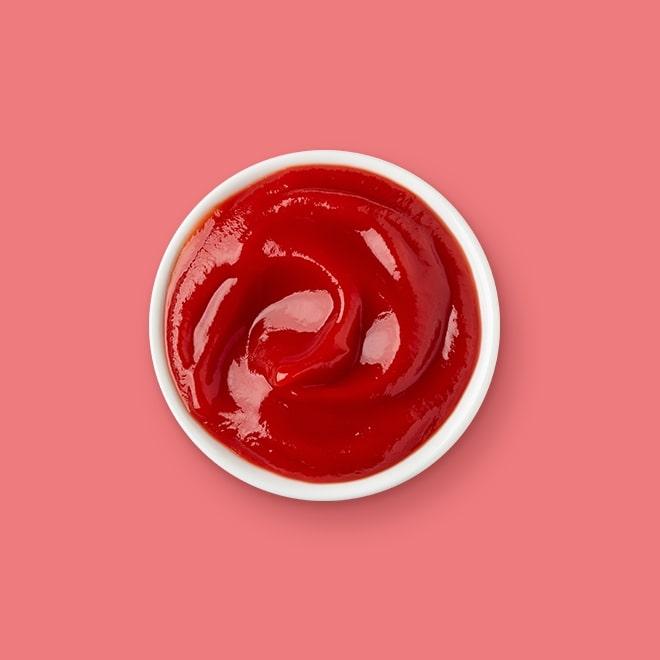Ketchup




Ketchup is a sweet and tangy sauce, typically made from tomatoes, a sweetener, vinegar, and assorted seasonings and spices. Tomato ketchup is often used as a condiment with various dishes that are usually served hot, including chips/fries, hamburgers, sandwiches, hot dogs, eggs, and grilled or fried meats.
Traditionally, different recipes featured ketchup made of mushrooms, oysters, mussels, walnuts, or other foods, but in modern times the term without modification usually refers to tomato ketchup, often called tomato sauce, or, occasionally, red sauce.
Ketchup is sometimes used as a basis or ingredient for other sauces and dressings. Ketchup is also used as a flavoring for potato chips, which is one of the most popular flavors in Canada.
The history and transformation of ketchup is an interesting one. Ketchup originates from China in the 17th century and was a mixture of pickled fish and spices, and was called kê-chiap. This sauce made its way to Malaysia and Indonesia where they called it kecap, and the British found it and brought it back to the UK
If making homemade ketchup, the quality of your tomatoes is very important. Only use luscious, ripe tomatoes. Grape tomatoes work, but feel free to use plum tomatoes instead. You want a meaty tomato for this, so save delicate heirlooms for salads.
An opened bottle of ketchup can be stored in the refrigerator for one to six months without changes to color or texture. Obviously, if it smells or looks rancid or "off", it should be discarded. But because ketchup is so high in acidity, it keeps quite well.
Unopened bottles may be kept in the pantry.
Equal parts ketchup and kosher salt to buff tarnished copper to a gleaming shine. Use a soft cotton cloth to buff on the mixture, and another cloth to wipe it clean.
Ketchup is acidic because of the tomatoes and vinegar. To the delight of penny-pinchers, this acidity makes it an inexpensive cleanser and polisher, especially for metals. Ketchup is also highly effective on brass. People rub it on brass items such as jewelry and lamps to remove tarnish, using the same method as copper.
It’s hard to get ketchup out of the bottle because ketchup is made of particles from pulverized tomatoes, along with water, vinegar, corn syrup and spices and is a Non-newtonian fluid. Newtonian fluids retain their viscosity — or resistance to flow — regardless of the amount of force you put on them. So, ketchup gets thinner the harder you push. Below a certain point of force, ketchup behaves like a solid, leaving you frustrated with anticipation.
Once you shake the bottle beyond that breaking point, the ketchup becomes 1,000 times thinner, giving you that shower of tomato paste that drowns your fries. How? Well, when you give that bottle a good, hard shake, all those spherical particles get squished into ellipses that easily flow past each other.
You can make your own ketchup! Mix together the tomato paste, white vinegar, brown sugar, garlic powder, onion powder, allspice, salt, molasses, corn syrup, and water in a saucepan over low heat; simmer gently until you get the consistency of ketchup, 45 minutes to 1 hour. Taste and adjust salt if necessary before serving.
Push already-sweet ketchup to the sugary edge with a carton of fresh strawberries. A few spices and some hot pepper sauce make it the rewarding barbecue sauce that can be added to burgers and BBQ.
Ketchup can be substituted for tamarind paste in your next Pad Thai recipe.
As well as being high in vitamin C and low in fat, ketchup contains vitamin A, which is key for a healthy immune system and, perhaps crucially, good vision.
Ketchup contains practically no fat, with less than 0.1 gram in each 1-tablespoon serving.
One of the benefits of ketchup is it’s high in lycopene. Lycopene is an antioxidant, which means it protects your body's cells from free radical damage.
Corrections or improvements? Email us at
content@sidechef.com